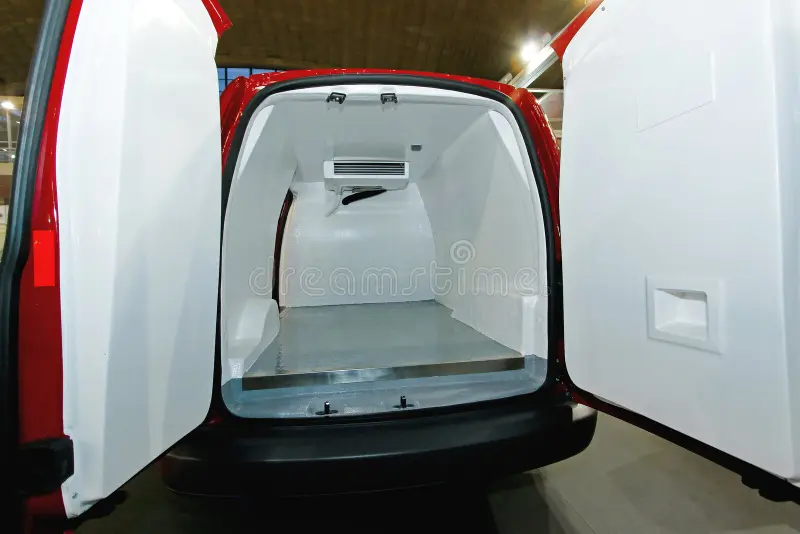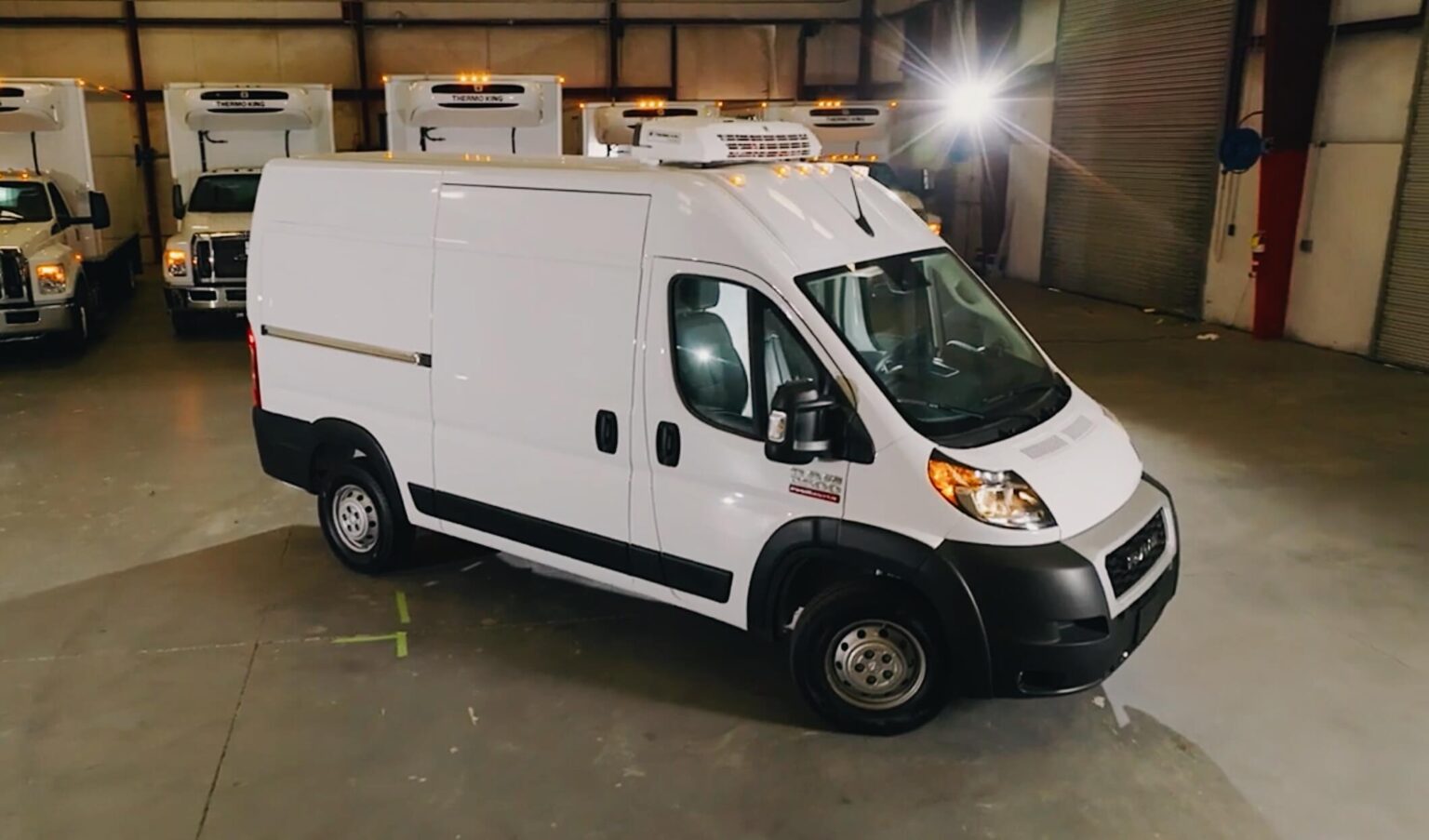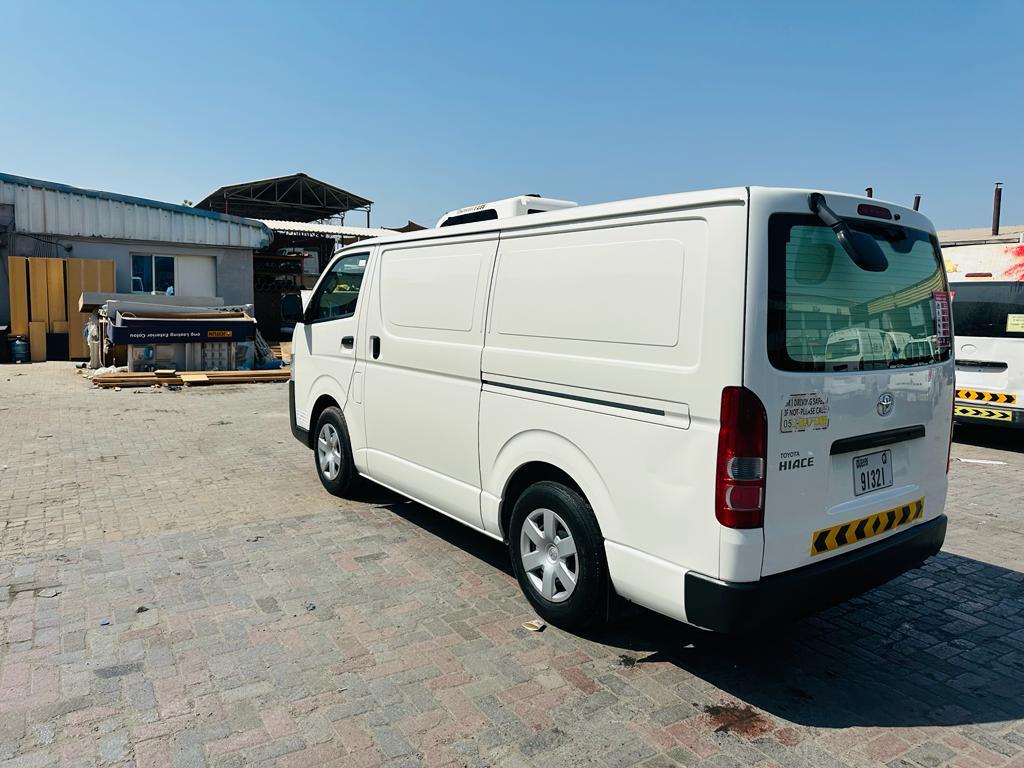Chiller Truck vs Chiller Van – Which to Choose for UAE Deliveries
In the dynamic logistics world of the UAE, maintaining the right temperature for perishable goods is vital. Whether you’re delivering fresh produce, dairy, pharmaceuticals, or frozen foods, the vehicle you choose makes all the difference. Businesses often find themselves deciding between two main options — chiller trucks and chiller vans.
But which one is better for your deliveries across Dubai, Abu Dhabi, Sharjah, or other UAE cities? Let’s explore the differences, benefits, and ideal use cases of each so you can make the right choice for your business.
1. Understanding the Basics
Before diving into the comparison, let’s clarify what these vehicles are:
- Chiller Truck:
A large, insulated vehicle equipped with a high-capacity refrigeration unit designed for transporting bulk or large quantities of temperature-sensitive goods. - Chiller Van:
A smaller, more compact refrigerated vehicle ideal for light to medium deliveries, especially within city limits or shorter routes.
Both serve the same purpose — keeping goods fresh and at the right temperature — but they differ in size, capacity, flexibility, and cost.
2. Size and Capacity Comparison
Chiller Trucks are designed for large-scale logistics. They can carry loads ranging from 3 to 10 tons, depending on the model. This makes them perfect for wholesale distributors, catering companies, and supermarkets that handle bulk deliveries.
Chiller Vans, on the other hand, usually handle 1 to 1.5 tons of goods. Their compact size allows them to navigate easily through busy city streets, making them ideal for restaurants, cafes, and small grocery deliveries.
Summary:
- Truck: Large capacity, suitable for bulk deliveries
- Van: Compact size, ideal for frequent small-scale deliveries
3. Temperature Control and Efficiency
Both vehicles come equipped with advanced cooling systems. However, the chiller truck’s refrigeration unit is typically more powerful and can maintain lower temperatures for longer durations — ideal for long-distance intercity transport.
Chiller vans maintain excellent temperature stability for shorter routes or within cities. For instance, a van can easily maintain 0°C to +5°C for chilled goods or -18°C for frozen items, depending on configuration.
If your deliveries involve longer distances or highly perishable goods, a chiller truck is the smarter option. For urban deliveries and short hauls, a chiller van delivers higher efficiency.
4. Maneuverability and Accessibility
UAE’s urban centers like Dubai and Abu Dhabi have areas where heavy vehicles face restrictions or limited access.
- Chiller Vans can easily access these areas and park in tight spaces, making them perfect for city deliveries.
- Chiller Trucks require more space for maneuvering and are more suited for warehouse-to-warehouse or industrial deliveries.
If your operations involve daily restaurant or retail deliveries within city zones, a chiller van will save you time and fuel.
5. Fuel Consumption and Operational Cost
Fuel efficiency is another deciding factor.
- Chiller Vans consume significantly less fuel compared to trucks, making them more cost-effective for small businesses.
- Chiller Trucks, while less fuel-efficient, offer a better cost-per-unit of goods transported for bulk loads.
In summary:
- Van: Lower fuel cost per trip
- Truck: Better value for large volume deliveries
6. Business Use Cases in the UAE
Let’s look at which businesses benefit the most from each option:
| Business Type | Best Option | Reason |
|---|---|---|
| Restaurants & Cafes | Chiller Van | Daily city deliveries and small loads |
| Supermarkets & Distributors | Chiller Truck | Bulk supply and intercity transport |
| Catering Services | Both | Van for local, truck for events outside city |
| Pharmaceutical Companies | Chiller Truck | Strict temperature control for long trips |
| Online Grocery Startups | Chiller Van | Fast urban deliveries with easy parking |
7. Cost and Rental Considerations
In the UAE, renting a chiller truck or van is a popular choice instead of purchasing outright.
- Chiller Van Rental in Dubai: AED 250–400/day
- Chiller Truck Rental in Dubai: AED 500–800/day
While chiller vans offer affordability and flexibility, chiller trucks provide better capacity for larger logistics operations. Choose based on your delivery scale, frequency, and budget.
8. Environmental Impact
Sustainability is becoming a major focus in UAE logistics. Chiller vans are often more eco-friendly, consuming less fuel and emitting fewer carbon emissions. Businesses aiming to reduce their carbon footprint prefer vans for city deliveries, while large-scale distributors continue to rely on trucks for efficiency.
9. Choosing the Right Vehicle for UAE Deliveries
Here’s a quick checklist to help you decide:
- Choose a Chiller Van if:
✅ You deliver within cities
✅ You have small or frequent deliveries
✅ You need flexibility and easy access - Choose a Chiller Truck if:
✅ You deliver large volumes across emirates
✅ You require extended temperature stability
✅ You handle wholesale or industrial logistics
10. Final Thoughts
When it comes to chiller truck vs chiller van in the UAE, the right choice depends on your business needs, delivery volume, and routes.
For small and medium-sized businesses, a chiller van offers the perfect balance between cost, efficiency, and flexibility. For large-scale distributors and exporters, chiller trucks are unmatched in capacity and reliability.

FAQs:
1. What is the main difference between a chiller truck and a chiller van?
A chiller truck is larger and suited for bulk deliveries, while a chiller van is compact and ideal for city deliveries.
2. Can I rent a chiller van for one day in Dubai?
Yes, many rental companies offer daily, weekly, and monthly rental options.
3. Which is more fuel-efficient — a chiller truck or van?
A chiller van is more fuel-efficient for shorter urban routes.
4. What temperature do chiller vans maintain?
Chiller vans typically maintain between 0°C and +5°C for chilled goods.
5. Are chiller vans suitable for frozen items?
Yes, with the right configuration, they can maintain up to -18°C for frozen goods.





